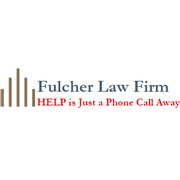A Quick Guide to Divorce Asset Divisions in North Carolina

Dividing assets during divorce proceedings depend on whether you live in a community property division or an equitable distribution state. A community property state means assets get divided equally, or 50/50, regardless of who owns the property. Equitable division covers just and reasonable divisions after reviewing asset ownership. If you reside in North Carolina, assets become subject to equitable division laws if you and your former spouse cannot agree on property divisions. Below, learn more about the process that often follows a legal separation.
Separate, Marital, & Divisible Property
According to North Carolina divorce laws, separate property covers any assets you acquired before the marriage or after your legal separation, such as inherited residences, third party gifts, and assets given to you through wills or trusts. Marital property includes assets and debts accumulated during the marriage up until the separation date, such as the marital home, vacation properties, pensions, commercial properties, and retirement benefits.
Divisible property revolves around any assets obtained after the legal separation but before the divorce gets finalized, such as job commissions or bonuses, passive income from vacation homes, and contractual rights. Marital debts acquired during this period also count as divisible property. However, individual debts do not.
Factors Determining Property Divisions
 North Carolina courts review numerous factors to determine fair asset distribution, including the age and health of both parties, the marriage duration, and the current financial status of each spouse. The court system also looks at how much the parties’ contributed to marital properties, child custody obligations from previous marriages, expected retirement benefits, and the needs of the custodial parent. The liquidity of marital assets gets taken into consideration, as well.
North Carolina courts review numerous factors to determine fair asset distribution, including the age and health of both parties, the marriage duration, and the current financial status of each spouse. The court system also looks at how much the parties’ contributed to marital properties, child custody obligations from previous marriages, expected retirement benefits, and the needs of the custodial parent. The liquidity of marital assets gets taken into consideration, as well.
Additional contributing factors include misconduct that financially affected marital assets, and any contributions the spouses’ made to each other’s education. And while marital misconduct, such as having an affair, will not influence property divisions, it will impact spousal support.
If you recently filed for legal separation in Albemarle, NC, contact the Fulcher Law Firm. Serving Montgomery and Stanly counties, this law firm offers over 18 years of experience and provides personal injury and criminal law assistance in addition to family law services. Call (704) 984-6060 today to schedule a consultation or learn more about practice areas online. Get the latest legal information on Facebook.
About the Business
(60 reviews)
Have a question? Ask the experts!
Send your question

